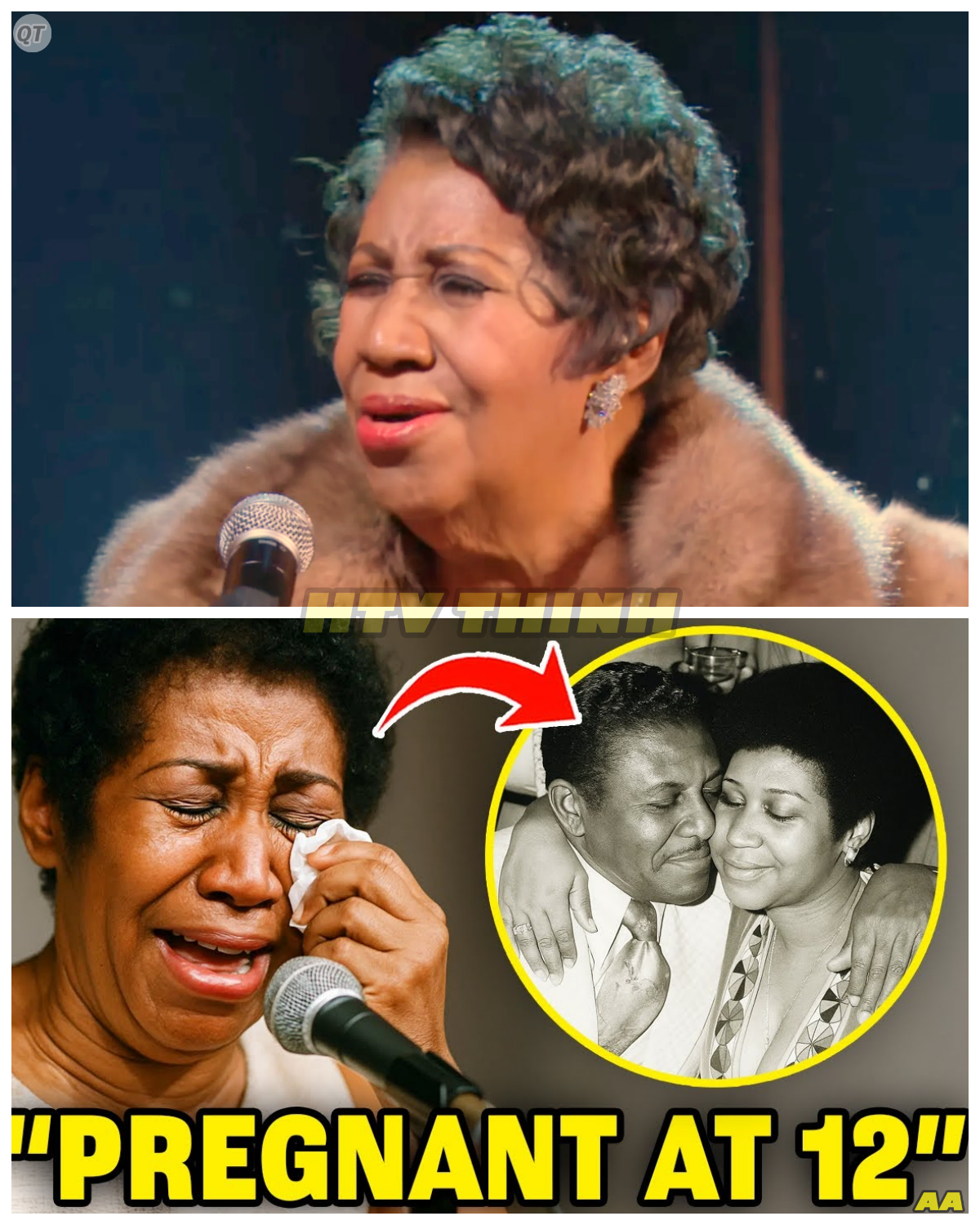 Aretha Franklin Finally Responds to the Most Horrific Claim of Her Life—And It Changes Everything We Thought We Knew! The idea that her own father could be involved in her early pregnancy is almost too awful to consider. But her words bring clarity to decades of confusion and pain.
Aretha Franklin Finally Responds to the Most Horrific Claim of Her Life—And It Changes Everything We Thought We Knew! The idea that her own father could be involved in her early pregnancy is almost too awful to consider. But her words bring clarity to decades of confusion and pain. 
Posted by
–
The Silent Truth: Aretha Franklin’s Hidden Pain and the Family Secret She Finally Revealed

Behind the powerful voice that earned her the title Queen of Soul lies a story few dared to speak about.
For decades, Aretha Franklin captivated the world with her extraordinary talent, her music echoing strength, resilience, and emotion.
Yet beneath the spotlight, a dark and painful family secret lingered in silence—one that shaped her life in ways the public never fully understood.
In a revelation that has shocked fans and historians alike, Aretha Franklin finally spoke about a deeply personal and harrowing truth: she had a child with her own father.
This disclosure is not merely a sensational headline.
It is a window into the complex realities of trauma, survival, and the burdens carried by those who live in the shadows of fame.
Aretha Franklin’s early life was marked by extraordinary pressures.
Raised in a household where music was both a gift and a refuge, she faced challenges that went far beyond the typical struggles of a young artist.
The weight of family expectations, the demands of a burgeoning career, and the hidden wounds of abuse created a complex web of pain and resilience.
The story of her child with her father reveals the painful cycles of abuse that often remain buried beneath the surface of public personas.
It forces us to confront uncomfortable truths about generational trauma and the silence imposed by power and legacy.
![]()
For Aretha Franklin, this silence was a necessary shield—a way to protect herself and her family from further harm and judgment.
Experts who have studied the intersection of trauma and creativity suggest that the pain behind Aretha Franklin’s music is inseparable from her life experiences.
Her voice, filled with raw emotion and soul, carried the echoes of her personal battles.
Every note she sang was a testament to survival, a cry for justice, and a call for healing.
The video that brings this revelation to light does so with respect and sensitivity.
It is not an attempt to sensationalize, but rather to educate and foster empathy.
Through historical analysis and expert commentary, it situates Aretha Franklin’s story within a broader societal context—one where many victims of abuse remain unheard.
The silence surrounding such family secrets is often maintained by societal taboos and the fear of scandal.
For a figure as iconic as Aretha Franklin, the stakes were even higher.
Her legacy as a musical legend could have been overshadowed by the revelation of such a painful truth.
Yet, by finally speaking out, Aretha Franklin has opened a door for dialogue about healing and justice.
Her courage challenges us to break the silence that too often protects abusers and perpetuates cycles of trauma.
It reminds us that behind every public figure is a human being with a story that deserves compassion and understanding.
This revelation also highlights the complex relationship between fame and personal pain.

For Aretha Franklin, the world saw a confident, powerful woman whose voice moved millions.
But behind the scenes, she grappled with wounds that fame could not heal.
Her story is a poignant reminder that celebrity does not shield anyone from the scars of abuse.
The intersection of truth, silence, and survival in Aretha Franklin’s life reflects a broader pattern seen in many families affected by abuse.
Victims often carry the burden of secrecy, fearing disbelief, shame, or retribution.
In breaking her silence, Aretha Franklin has become a symbol of courage for countless others who suffer in silence.
The implications of this story extend beyond the personal to the societal.
It calls on us to examine how we respond to the uncomfortable truths behind our icons.
How do we balance respect for their legacies with the need to acknowledge their full humanity?
How can we create spaces where victims feel safe to speak and heal?
As we reflect on Aretha Franklin’s revelation, we are invited to consider the power of storytelling in healing trauma.
Her music was always a form of storytelling—expressing pain, joy, love, and resilience.
Now, her personal story adds a new layer of depth to her legacy, enriching our understanding of the woman behind the voice.
This story is also a call to action.
It urges society to confront the realities of abuse and generational trauma.
It challenges institutions, families, and communities to break cycles of silence and provide support for survivors.